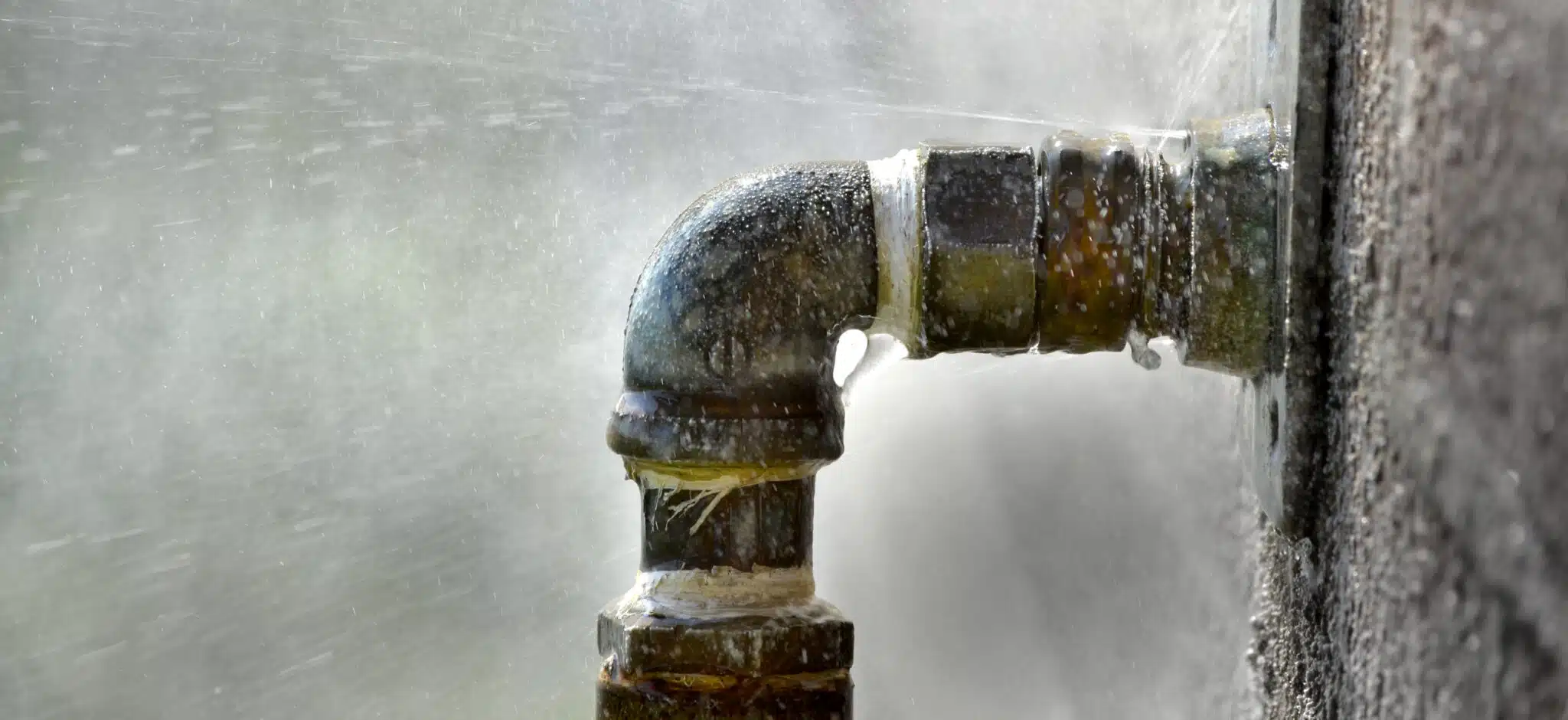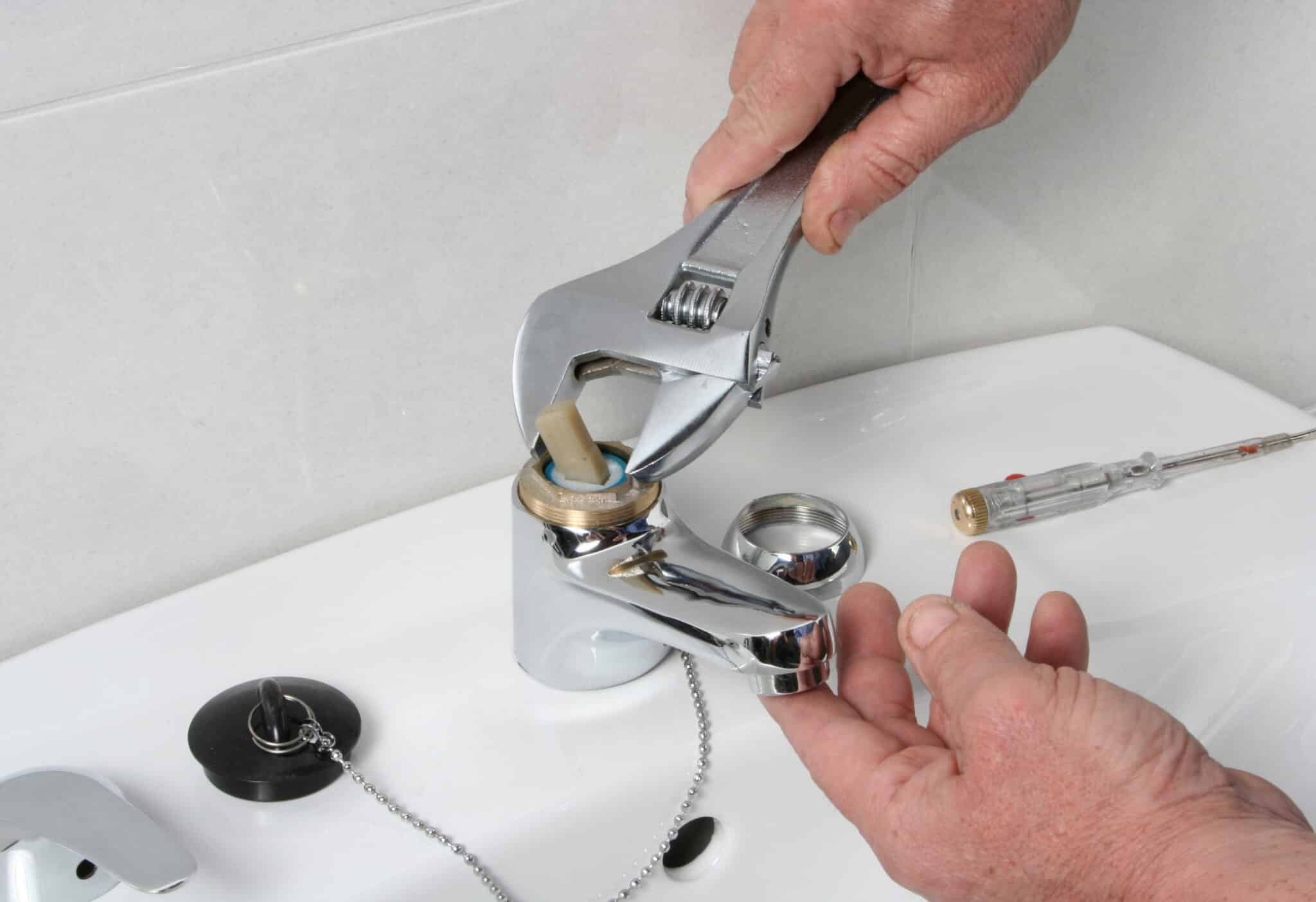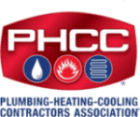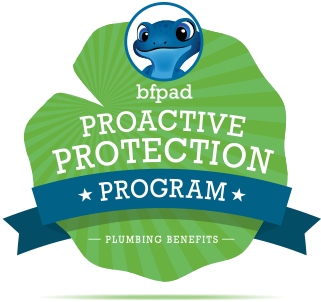
Preventing Pipe Vibration and Noise in Colder Temps
As winter sets in, your plumbing system faces its toughest test. Pipe vibration and noise, often dismissed as harmless nuisances, are clear signals of underlying issues. The colder temperatures cause pipes to contract and expand, straining joints and fixtures and leading to disruptive clanking, rattling, or banging noises.
Left unaddressed, these disturbances can escalate into serious problems like frozen pipes or leaks, putting your home at risk for costly repairs. Taking swift action to resolve pipe vibration ensures a more efficient and quieter plumbing system when you need it most. A little attention now can save you from bigger headaches later—and keep your home safe and comfortable throughout the winter.
How Pipe Vibration and Noise Affect Your Home
The unsettling sounds of pipe vibration and noise are more than a minor inconvenience—they are warning signs of underlying issues that could threaten the integrity of your home’s plumbing system. When pipes vibrate, the stress placed on their joints, fixtures, and supports increases dramatically. Over time, this strain can weaken connections, leading to leaks, water damage, and, in severe cases, pipe bursts that wreak havoc on your property.
During winter, these issues intensify as colder temperatures force pipes to expand and contract. This constant movement weakens already vulnerable areas and amplifies vibrations. When combined with increased water pressure or freezing water within the pipes, the risk of catastrophic failures becomes even greater. What might start as an occasional rattle or bang can quickly escalate into a costly repair if ignored?
Pipe vibration does not just damage your plumbing system—it disrupts your home’s comfort and serenity. Imagine trying to relax during a quiet evening, only to be interrupted by banging or rattling noises coming from your walls. Worse, these sounds can mask hidden structural damage that is growing more serious with time.
Taking immediate action when you notice pipe vibration is essential. Simple preventative measures, such as inspecting and securing pipes or installing vibration dampeners, can make a world of difference. By addressing these problems early, you not only avoid costly repairs but also ensure that your plumbing system operates efficiently and quietly, maintaining the comfort and safety of your home during the harsh winter months.
Impact of Cold Temperatures on Plumbing
Cold temperatures are a formidable challenge for your home’s plumbing system, capable of turning small vulnerabilities into major disasters. Winter conditions affect pipes in several ways, all of which compromise their integrity and increase the risk of costly repairs. Understanding these impacts can help homeowners take proactive steps to protect their plumbing.
Expansion and Contraction Stress
As temperatures drop, pipes naturally expand and contract. This continuous movement weakens pipe walls, joints, and fittings over time, leaving your plumbing more susceptible to cracks and leaks. These stresses are magnified during severe cold snaps, making winter the most dangerous season for your system.
Freezing Water and Ruptured Pipes
When water freezes inside a pipe, it expands, creating immense internal pressure. This can result in ruptures that cause significant water damage to your home. Even if pipes do not burst, the strain from freezing water reduces their durability and increases the likelihood of failure.
Aggravation of Pipe Vibration and Noise
Cold temperatures amplify pipe vibration and noise, especially in pipes with loose fittings or inadequate insulation. As pipes contract in the cold, they can shift, rattle, or bang against walls, not only disrupting your home’s peace but also creating points of stress that lead to long-term damage.
Water Pressure Disruptions
Frozen sections of pipe can cause blockages that lead to uneven water pressure. This imbalance places extra strain on your plumbing, increasing the likelihood of leaks or damage in vulnerable areas.
Preventative Measures to Combat Cold Weather Damage
Protecting your pipes against the cold is critical. Insulating exposed pipes, maintaining consistent indoor temperatures, and regularly inspecting your plumbing for signs of wear are effective strategies to mitigate winter’s impact. Addressing these risks early not only safeguards your home but also ensures that your plumbing system operates quietly and efficiently.

Common Causes of Pipe Vibration in Winter
Winter’s freezing temperatures put a strain on your plumbing system, often leading to pipe vibration and noise that disrupt your home. While these vibrations may start as minor inconveniences, they often signal more serious issues. Understanding the causes can help you prevent costly damage and maintain your plumbing’s efficiency throughout the colder months.
Thermal Contraction and Loose Fittings
Cold weather causes pipes to contract, pulling on joints and fittings. Over time, this loosening creates instability, making pipes more likely to rattle or vibrate. These movements may start small but can weaken your plumbing infrastructure if left unaddressed.
The Water Hammer Effect
Water hammer occurs when a sudden stop in water flow creates a shockwave through your pipes. During winter, freezing temperatures make water flow more erratic, amplifying this effect. The result is loud banging noises and intense vibrations that stress pipe joints and fixtures
Frozen Blockages and Increased Pressure
As water freezes inside a pipe, it forms blockages that restrict flow. This creates a dangerous buildup of pressure behind the frozen section, causing vibrations and potential pipe bursts. Frozen pipes are a leading cause of winter plumbing emergencies.
Inadequate Pipe Securing
Pipes that are not properly secured with brackets or insulation are more vulnerable to vibration in cold weather. As the pipes contract or water rushes through, these unsecured sections can knock against walls or other surfaces, creating both noise and wear.
Aging or Deteriorating Plumbing Components
Older pipes and worn-out components, such as valves and seals, are more susceptible to winter’s challenges. The added stress from freezing temperatures can cause these aging parts to fail, increasing vibration and instability in your plumbing system.
Addressing these causes early can save you from expensive repairs and ensure your plumbing operates safely and quietly throughout the winter. Regular inspections, pipe insulation, and securing loose sections are simple but effective steps to prevent pipe vibration from escalating into a larger issue.
Identifying Problematic Areas in Your Home
In Highland Park, TX, cold weather can bring more than just a chill—it can expose hidden vulnerabilities in your plumbing system. Pipe vibration during winter is often a warning sign of stress points in your pipes, and finding these problematic areas early can prevent costly repairs. Identifying where these vibrations are most likely to occur is essential to keeping your plumbing system safe and efficient.
Basements and Utility Rooms
Basements or utility areas often house exposed pipes and essential plumbing fixtures. In Highland Park, where winter temperatures drop significantly, these areas are prone to pipe vibration caused by freezing pipes or loose fittings. Vibrations in these spaces often indicate underlying issues like pressure changes or unsecured sections of pipe.
Pipes Along Exterior Walls
Pipes installed along or inside exterior walls are especially vulnerable to freezing. As ice forms, it blocks water flow and increases pressure, causing excessive pipe vibration. Highland Park homes can reduce this risk by insulating these pipes to maintain a steady temperature and prevent freezing.
Kitchens and Bathrooms
Kitchens and bathrooms, due to their high usage, are common places for pipe vibration and noise to arise. Vibrations may occur when turning on faucets or flushing toilets, often due to water hammer or worn-out valves. These vibrations not only disrupt your home’s tranquility but may also damage pipe connections over time.
Attics and Crawl Spaces
In Highland Park, poorly insulated pipes in attics or crawl spaces are at high risk for freezing and vibration. Contractions from cold weather often loosen fittings, causing pipes to rattle or knock against surrounding materials. Regularly inspecting these overlooked spaces is crucial during the winter months.
Around Appliances and Fixtures
Vibrations near washing machines, dishwashers, or water heaters are common, especially when pipes are not properly secured. High water pressure from these appliances often leads to increased pipe vibration, which, if unchecked, can weaken plumbing joints and create leaks.
Why Identifying Problem Areas Is Essential
In Highland Park’s cold winters, ignoring pipe vibration can escalate minor plumbing problems into serious emergencies. By identifying vulnerable areas early, you can take proactive steps such as insulating pipes, securing loose sections, and addressing water pressure issues. These measures not only extend the life of your plumbing but also ensure a quieter and more comfortable home throughout the season.
Preventative Measures to Reduce Pipe Vibration and Noise
Highland Park, TX, winters bring more than chilly weather—they put your home’s plumbing to the test. Pipe vibration and noise are common problems that many homeowners overlook, but they often signal underlying stress that can lead to major issues. The good news? A few preventative measures can protect your pipes and preserve your home’s tranquility.
Insulate Pipes for Maximum Protection
Exposed pipes are highly vulnerable to temperature fluctuations, which cause them to expand and contract. This movement triggers vibrations and weakens connections over time. Adding foam or rubber pipe insulation creates a protective barrier, reducing both vibrations and the risk of freezing during cold spells.
Secure Pipes to Eliminate Movement
Loose pipes are prone to rattling and banging, especially when water flows at high pressure. Use pipe brackets to secure pipes firmly to walls or ceilings. For pipes passing through walls, consider adding cushioning material, such as rubber gaskets, to prevent impact noise and further vibration.
Control Sudden Water Flow with Arrestors
Water hammer, a loud banging sound caused by abrupt stops in water flow, is a frequent cause of pipe vibration. Installing a water hammer arrestor absorbs these shockwaves, protecting your pipes from unnecessary strain and preventing noise from spreading through your plumbing system.
Lower Excessive Water Pressure
High water pressure might seem desirable, but it can wreak havoc on your pipes. Elevated pressure intensifies vibrations and accelerates wear on joints and fittings. A pressure-reducing valve helps maintain safe pressure levels, reducing both noise and stress on your system.
Preserve Your Plumbing’s Integrity
By insulating pipes, securing loose fittings, and addressing water pressure, you can significantly reduce pipe vibration and protect your plumbing system. Highland Park homeowners who take these steps not only avoid costly repairs but also enjoy a quieter, safer home throughout the winter season.
Seasonal Maintenance Tips for Homeowners
Preparing your home’s plumbing system for colder temperatures is essential to avoid issues like pipe vibration, freezing, and costly water damage. A few proactive steps can ensure your plumbing operates efficiently and keeps your home safe through the season.
-
Insulate Pipes in At-Risk Areas
Pipes located in unheated areas, such as basements, crawl spaces, and attics, are particularly vulnerable to freezing and stress. Wrapping them with foam insulation or heat tape stabilizes temperatures, reducing the risk of vibration caused by contraction and expansion. This measure also prevents freezing, which can lead to bursts or blockages.
-
Seal Gaps Around Plumbing Fixtures
Cracks and openings around pipes near sinks, exterior walls, or under cabinets let cold air seep in, increasing the likelihood of freezing. Use caulking or weatherstripping to seal these gaps and create a barrier against cold drafts. This not only protects your pipes but also helps reduce energy costs by keeping your home warmer.
-
Let Water Flow During Freezing Weather
Allowing faucets to drip slightly during extremely cold nights prevents stagnant water from freezing inside pipes. This small trick relieves pressure in the plumbing system, which reduces both vibration and the risk of pipe bursts. Moving water is less likely to freeze, providing an extra layer of protection.
-
Prepare Outdoor Plumbing
Disconnect and drain hoses from outdoor faucets to prevent trapped water from freezing and expanding. Install insulated covers over outdoor spigots to protect them from extreme cold. Properly winterizing your outdoor plumbing keeps the entire system stable and reduces the chances of indoor issues.
-
Schedule a Professional Plumbing Inspection
A professional checkup can identify and fix early signs of pipe vibration, leaks, or worn fittings before they escalate into major problems. Addressing these issues ahead of time ensures your plumbing is ready to handle the increased demands of colder weather.
A Safer, Quieter Home All Season
Insulating pipes, sealing gaps, and staying proactive with inspections help prevent pipe vibration and other winter plumbing issues. These maintenance steps ensure peace of mind and keep your home running smoothly, regardless of how cold it gets.

When to Call a Professional Plumber
Some plumbing problems go beyond simple fixes and require the expertise of a professional. Recognizing when to call a plumber can save your home from severe damage and ensure your plumbing system remains efficient. Issues like pipe vibration, leaks, or sudden water pressure changes often signal deeper concerns that need expert attention.
Persistent Pipe Vibration or Unusual Noises
If vibrations or rattling noises continue after securing and insulating your pipes, it could indicate underlying problems like high water pressure, water hammer, or structural issues. A professional plumber can identify the root cause and provide lasting solutions to prevent further damage.
Frozen or Burst Pipes
Freezing temperatures can cause water inside pipes to freeze and expand, leading to blockages or bursts. Attempting to resolve this on your own can worsen the situation. A plumber has the tools and experience to safely thaw frozen pipes and repair any damage without compromising the rest of your plumbing system.
Recurring Leaks
Constantly dealing with leaks, even minor ones, could mean deteriorating pipes, faulty joints, or hidden issues in your plumbing network. Plumbers use advanced detection methods to locate the exact source of the problem and fix it permanently.
Sudden Changes in Water Pressure
A noticeable drop or spike in water pressure might indicate clogs, leaks, or a malfunctioning pressure regulator. A professional can diagnose the issue quickly and restore your plumbing to its optimal condition.
Installation of New Fixtures or Appliances
Whether you are upgrading a water heater, installing a dishwasher, or replacing plumbing fixtures, a plumber ensures everything is properly connected and functioning efficiently. Professional installation also ensures compliance with local building codes.
Safeguard Your Home with Professional Help
Calling a professional plumber for issues like pipe vibration or recurring leaks ensures your plumbing system operates smoothly and prevents long-term damage. Plumbers bring the expertise needed to resolve complex problems, giving you peace of mind and saving you from unnecessary expenses.
Case Study: Highland Park, TX
In Highland Park, winter weather creates plumbing challenges like pipe vibration, frozen pipes, and pressure issues. Unaddressed, these problems can lead to costly damage. bluefrog Plumbing + Drain of North Dallas specializes in solving these winter-specific issues. From insulating pipes to prevent freezing to eliminating vibration with secure brackets and water hammer arrestors, we tailor solutions to protect your home. Our expert team also ensures steady water pressure and clears clogs caused by increased holiday use. Trust us to keep your plumbing running smoothly all winter. Call today for professional service designed for Highland Park homes.
FAQS
-
What causes pipes to make noise in cold weather?
Pipes can make noise in cold weather due to thermal contraction and expansion as temperatures drop. This movement can loosen fittings and supports, causing rattling or banging sounds. Additionally, freezing water inside pipes can create blockages that increase pressure, leading to noise and vibration.
-
How can I tell if my pipes are vibrating excessively?
Excessive pipe vibration is often accompanied by noticeable rattling, banging, or knocking sounds, especially when water is flowing. You might also feel vibrations in the walls or hear noises when faucets are turned on or off. Persistent vibrations should be addressed promptly to avoid damage to your plumbing system.
-
Is pipe insulation effective in reducing noise?
Yes, pipe insulation is highly effective in reducing noise. It cushions the pipes, absorbing vibrations and preventing them from knocking against walls or other surfaces. Insulation also minimizes temperature fluctuations, which can contribute to thermal movement and noise.
-
What is a water hammer, and how does it relate to pipe noise?
A water hammer occurs when water flow is abruptly stopped, creating a pressure wave that causes pipes to bang or vibrate. This can result in loud noises and stress on the plumbing system. Installing a water hammer arrestor can help absorb these shockwaves and reduce noise.
-
When should I seek professional help for noisy pipes?
You should call a professional if the noise persists after insulating pipes or securing loose sections. Issues like excessive pipe vibration, water hammer, or recurring banging sounds often indicate deeper problems, such as high water pressure or failing components. A plumber can diagnose and resolve the root cause to prevent further damage.



















